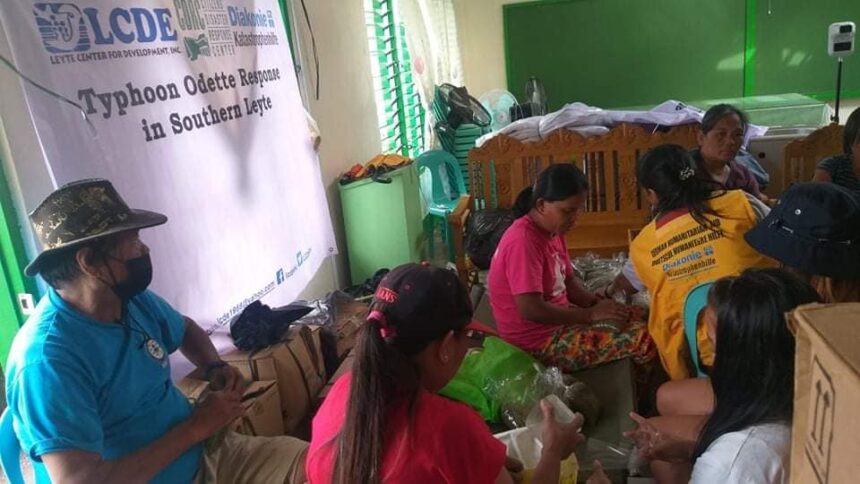Months later after typhoon Odette, several communities in Southern Leyte are still reeling from the damages they sustained from the storm. Barangay Tigbao is one of the remote villages in Libagon City in Southern Leyte and also one of the hardest hit by the typhoon Odette when it struck the country in December last year. As it is surrounded by the sea and rich in coconut trees, most of the 461 families depend on fishing and coconut production as their main source of living. The average annual income is less than Php 20,000.00, not sufficient to meet the family’s basic needs. Moreover, poverty has been exacerbated by the covid-19 pandemic in this poor community.
Another thing that has added to the vulnerability of this community was the lack of community knowledge in disaster management. The villagers only depend on the local Government Unit on disaster preparedness and they are accustomed to making no disaster preparedness done before a disaster struck. LCDE observed that there is still a huge gap in disaster preparedness capacities. The same is true with readiness on Emergency Response. Given the situation, villagers of Brgy. Tigbao is always at a higher risk of threats posed by disasters.
After the onslaught of Typhoon Odette in the province, LCDE immediately jumps into action to provide for the immediate needs of the severely-vulnerable families of the barangay. The activity was just a one-shot food and non-food pack distribution to families heavily hit by Typhoon Rai last December 16, 2021. This was the first time LCDe intervened in Barangay Tigbao with food pack and non-food item distribution. The distribution was organized, as the LCDE did area preparation before the actual distribution. A blanket distribution was conducted to cover the overall population of the barangay.
LCDe recommends to the National Government to increase capacities of GU’s for Emergency Response and Disaster Preparedness. It is primarily the State’s responsibility to address the needs of disaster survivors. Government should:
1. Invest more in building community resilience through skills, knowledge on DRR and organizing;
2. Pre-position of goods (food and non-food items). We all know that September onwards are typhoon months in the Philippines. The government must sufficiently pre-position so that distribution can be launched 24 hours after the typhoon strikes;
3. Immediately launch early recovery, 2 weeks after the typhoon, survivors need alternative livelihood or bring their livelihoods back.
Despite LCDE’s prompt response, needs in the area remain high, as the provided relief is temporary and would only last for a few days. Residents expressed uncertainty about their livelihoods being destroyed by Typhoon Odette. They fear there will be widespread hunger, just like many affected provinces by this super typhoon. Much more needs to be done as many families are still unable to bounce back. If no one will strengthen them, they will remain weak and vulnerable every time a disaster strikes.

